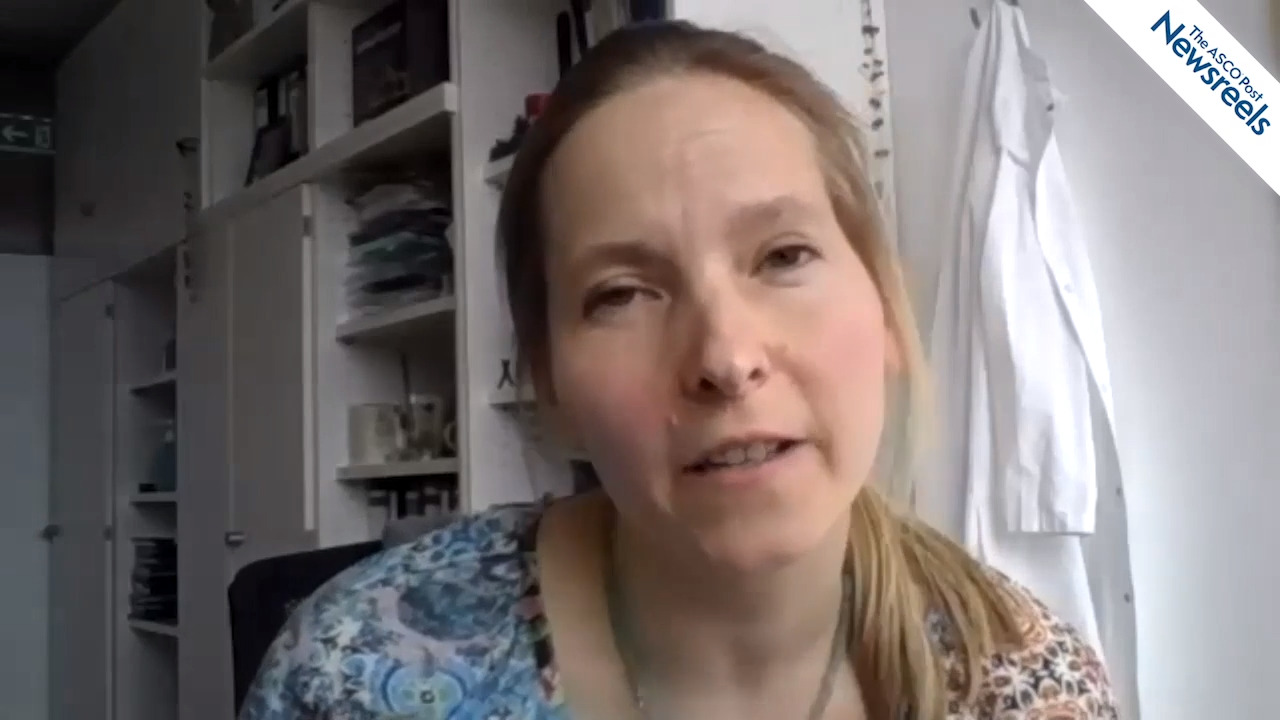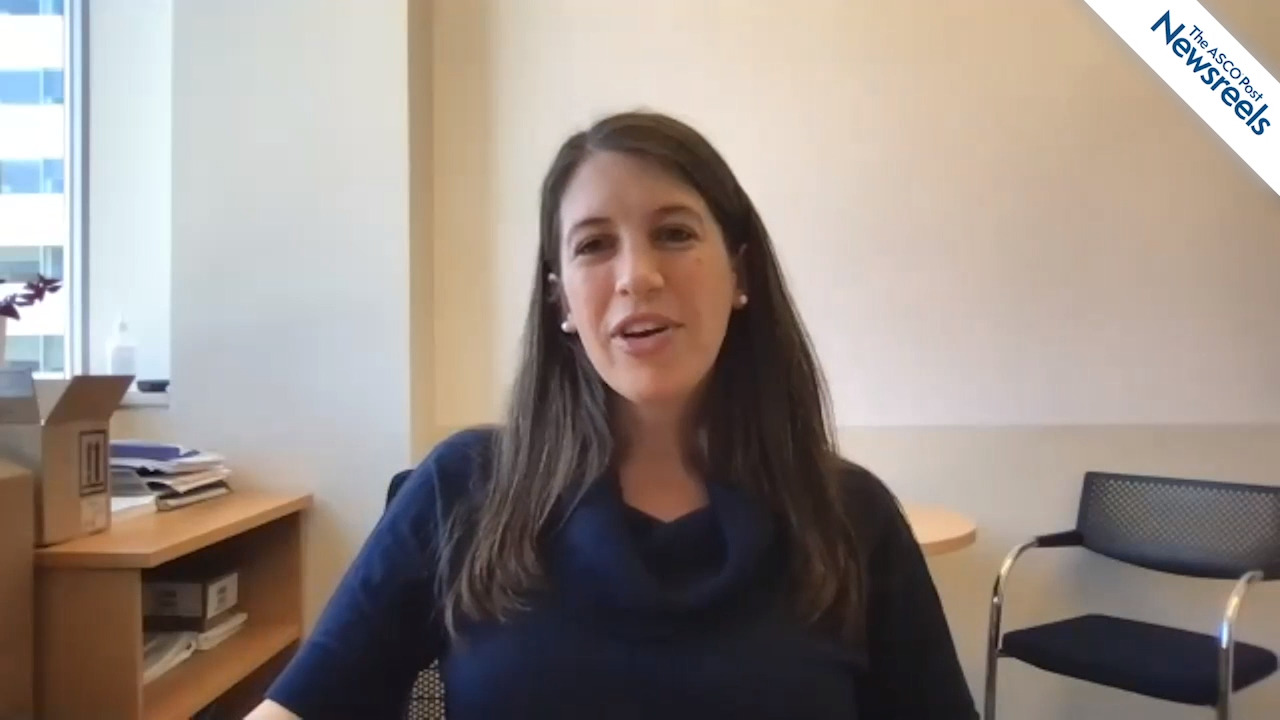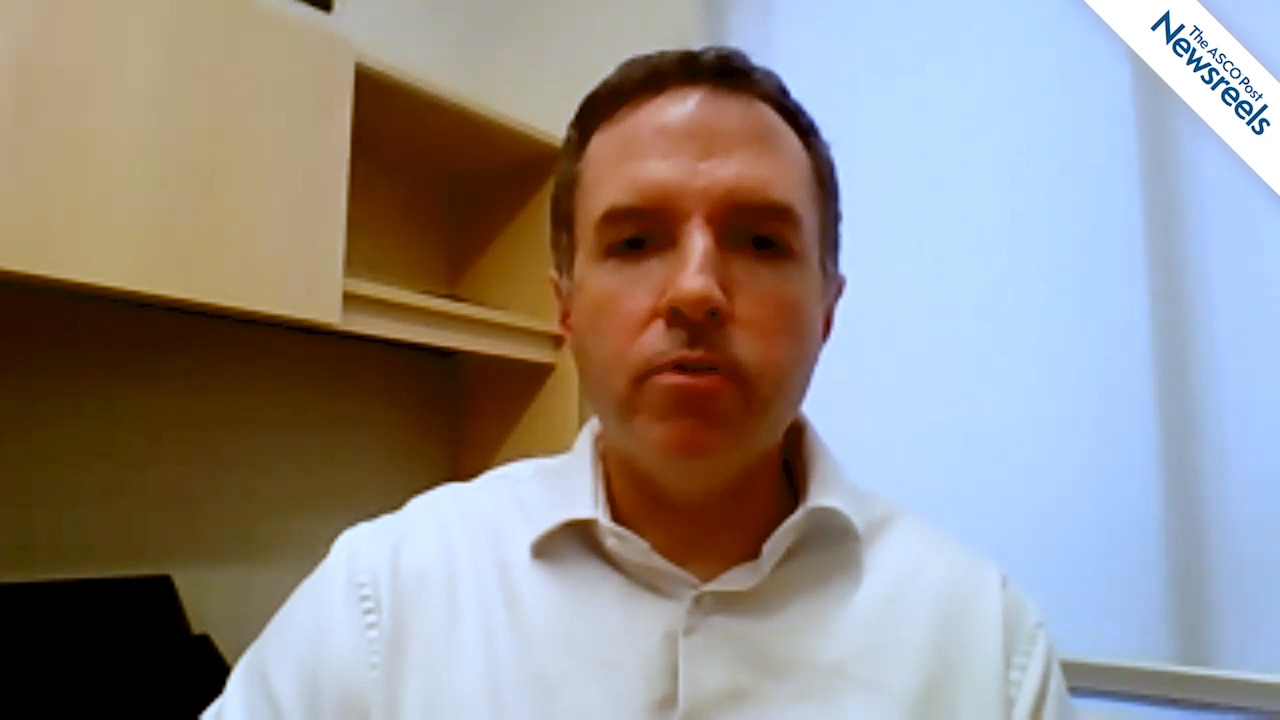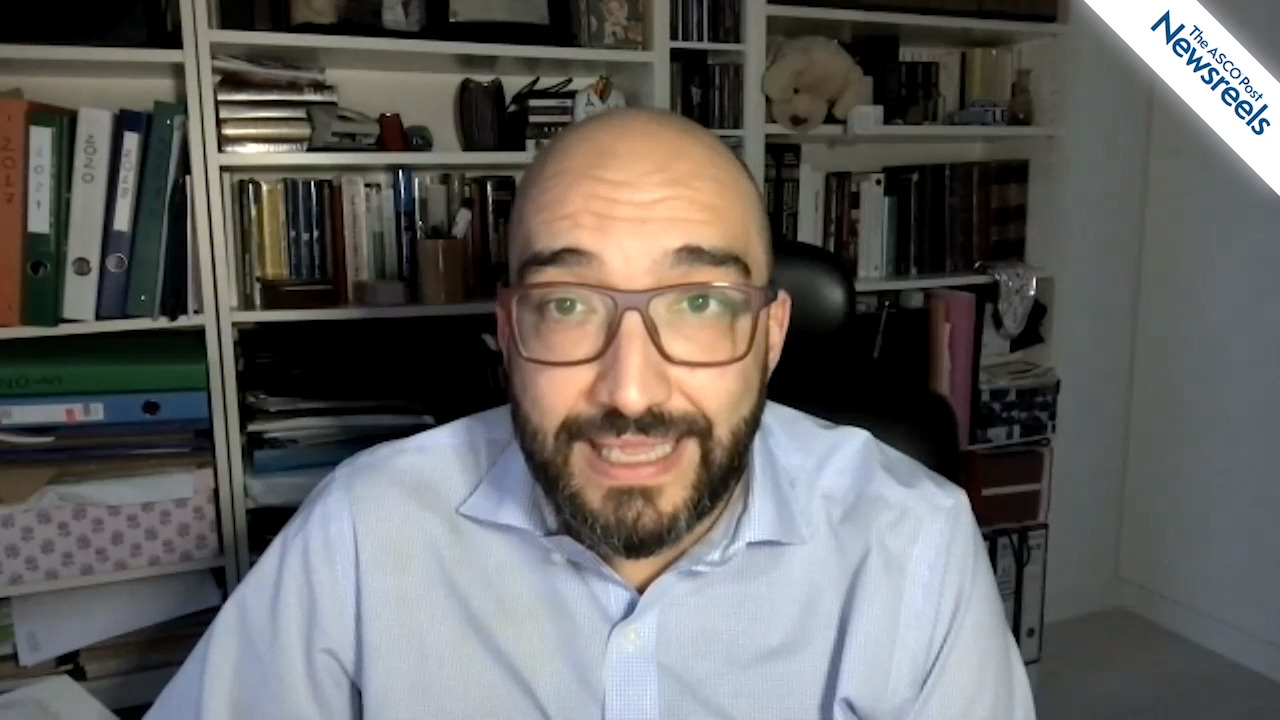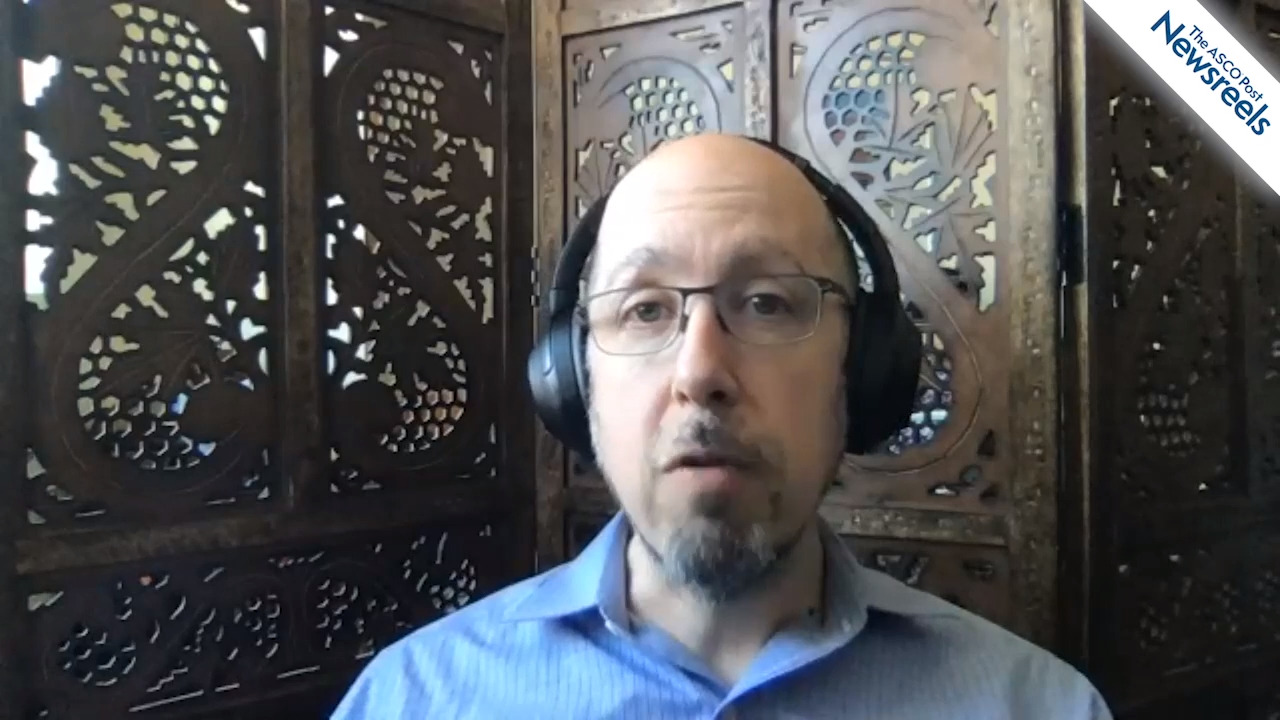Brian I. Rini, MD, on Renal Cell Carcinoma: Data on Atezolizumab, Bevacizumab, and Sunitinib
AACR Annual Meeting 2021
Brian I. Rini, MD, of Vanderbilt University, discusses the IMmotion151 trial results on overall survival and the association of gene expression and clinical outcomes with atezolizumab plus bevacizumab vs sunitinib in patients with locally advanced or metastatic renal cell carcinoma (Abstract CT188).
The ASCO Post Staff
Jessica C. Hassel, MD, of University Hospital Heidelberg, discusses phase III results of a study that compared tebentafusp, a bispecific fusion protein, with investigator’s choice in patients with metastatic uveal melanoma. Tebentafusp nearly halved the risk of death among patients in the trial with this rare eye cancer (Abstract CT002).
The ASCO Post Staff
Katelyn T. Byrne, PhD, of the Perelman School of Medicine at the University of Pennsylvania, discusses the first in-depth analysis of the impact of selicrelumab, an anti-CD40 antibody, which was found to enrich T cells in pancreatic tumors, activate the immune system, and alter the tumor stroma (Abstract CT005).
The ASCO Post Staff
Patrick M. Forde, MD, of the Sidney Kimmel Comprehensive Cancer Center at Johns Hopkins University, discusses results from the CheckMate 816 trial, which showed that adding nivolumab to chemotherapy as a neoadjuvant treatment for patients with resectable non–small cell lung cancer improved the pathologic complete response rate to 24%, compared to 2.2% with chemotherapy alone (Abstract CT003).
The ASCO Post Staff
Enrique Grande, MD, PhD, of The University of Texas MD Anderson Cancer Center, Madrid, discusses phase III overall survival results from the IMvigor130 study of atezolizumab plus platinum and gemcitabine vs placebo plus platinum and gemcitabine in patients with previously untreated metastatic urothelial carcinoma (Abstract CT187).
The ASCO Post Staff
Matthew J. Matasar, MD, of Memorial Sloan Kettering Cancer Center, discusses phase III results of the CHRONOS-3 trial, which showed that copanlisib plus rituximab led to a 48% reduction in the risk of disease progression or death compared with placebo plus rituximab in patients with relapsed indolent non-Hodgkin lymphoma (Abstract CT001).
